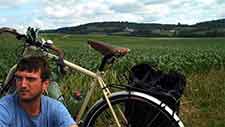It has been a few weeks since my last post. A few weeks I will never forget. As most of you already know, on August 28th the state of Vermont was devastated by tropical storm Irene. Among the Vermont towns hit the hardest was our quaint little village of Wilmington. While our small farmstead weathered the storm with nothing more than a few damaged plants, I am sad to say that many of our fellow community members, business owners, farmers and friends were not as fortunate as tremendous losses have occurred. My heart goes out to them. Every day I wish I had supernatural powers that could either make the situation go away or to alleviate the damage that has already been done. With that said, I know that once the dust settles (literally), the state of Vermont will come out stronger on the other side. As roads are re-opened and rebuilt and small businesses seek ways to sweep away remnants of Mother Nature’s fury, the spirit here in the Green Mountains still shines bright.
Recently, as harvest peaked with beauty and bounty, I have been putting a lot of thought into what will essentially be my final post of this amazing journey via CUpS. And while I am excited to share the final sequences of my personal transformation and discovery of our nation’s food system and communities, I wanted to share with you some of the most meaningful and inspirational words spoken by the tremendous people I encountered on this trip. Here are just a few. Enjoy.
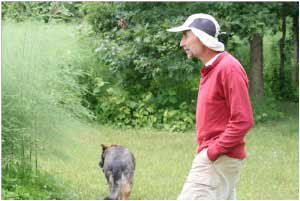
“Do we want to have a sustainable agriculture system? Or do we want to do better and create a restorative agriculture system where we operate by principle? These principles would mean that we would create ecological capital and when we farm the land, our soils are getting better and the carbon is sequestered out of the atmosphere; the biodiversity within the soil structure is increasing and the resilience of the landscape is increasing. I would vote for the latter.” – Greg David
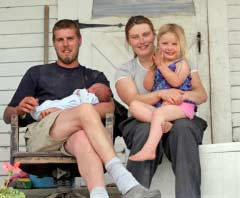
“The reality of the situation is this: If everyone here in Skowhegan wanted to buy from us at the farmer’s market there wouldn’t be enough food to go around. We need to get more people to farm because it is extremely empowering. In order to change our food system we need to get to a point where one in three people are growing food and not one in one hundred. We cannot get away from industrial agriculture until more people are growing food on a small scale. If people are truly concerned with where their food comes from, they should not only support their local farmers but they should simply grow their own food.” – The Smith Family
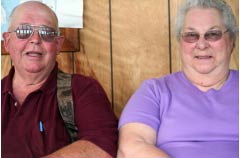
“When I was farming with my grandfather he made all of the decisions. Right down to the littlest of details. I vowed I would never be that way. When I bought this farm from my father he said ‘Son, you will never make a go of it.’ But somehow I did.” – Dick Hall
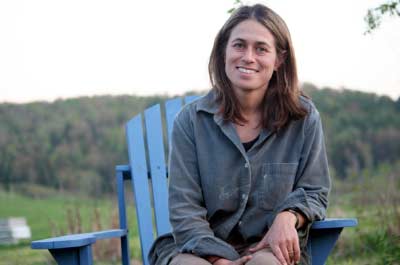
“We have forgotten that food grows from the earth with only the help from us humans. Part of the solution is in fact getting to know the farmer, but digging a potato and pulling carrots from the earth is truly moving for people. It’s not just about you purchasing from me. I want you to get on my farm and pick a tomato. That makes the difference.” -Mimi Arnstein
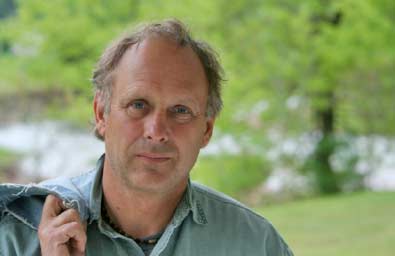
“I am guided by the central idea that food has a memory. It is changed by what we do with it and what we are thinking about as we are making the food. If you are in the food business the most meaningful thing you can do is to make food that is delightful to the palate and that is constructive to the human health and the land that it came from.” -George Schenk
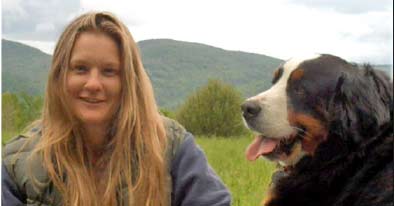
“We are on the preface of a global food and land crisis. How are we possibly going to make those two things come together? You know, It’s great that here in Vermont I have plenty of water and food that allows me to eat and live selectively. But how are we going to help everybody else? I don’t know that answer. I feel the best thing that we can do is encourage people to root themselves in their communities and do the best that they can within their own space.” – Meghan Sheridan
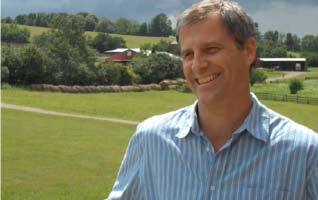
“Our food choices have profound consequences, but most people don’t think very much about their food choices and are eating in a way that is harmful to themselves, harmful to the animals and harmful to the planet and is inconsistent with their own values and inconsistent with their own interest.” –Gene Baur
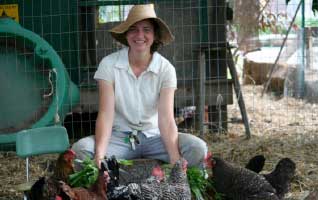
“I have concerns for future generations of children, animals, plants, and bugs. All of these things are valuable. We should ask people, ‘Have you ever felt any kind of care or concern for any child whatsoever?’ It is pretty simple to think about. The environment affects agriculture and agriculture affects food and food affects people’s well-being. We should try and think about what we can do to make things better and actions that would help assure that our future generations of children will be able to eat and have nutrition.” –Meagen Kresge
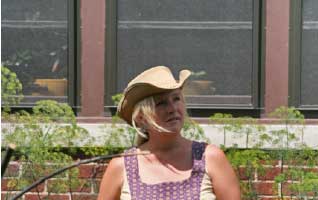
“In order sustain our lifestyles we will have to grow food in every space we can find. Right now many people don’t know how to grow their own food. A good place to start is in your back yard. This is how we start to decrease our dependence on our current industrial food system.” – Gretchen Mead
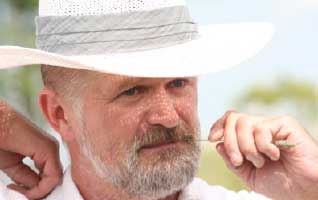
“What I am trying to get through to people is that permaculture is not about a bunch of happy little hippies in the backyard growing a few potatoes. We are talking about production agriculture for our carbohydrates, protein and oil.” –Mark Shepard
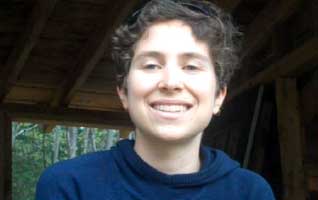
“There are so many people out there who have this mentality that one person cannot make a difference. One might say ‘why should I stop eating factory farmed foods when there are still going to be millions of others who will? What difference will it make?’ I feel that if we all take action we could create a viable and local economy and prevent industrial agriculture from taking over.” – Ari Rosenberg
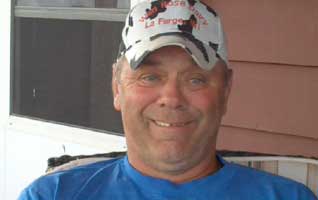
“When you get right down to it you gotta put the rubber to the road. Cows are not the major polluters in this world…us two legged people are.” –Art Thelin
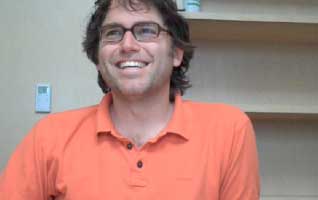
“More than anything we need to change the entire paradigm of how we look at environmentalism. I think it has been deeply connected into a Judeo-Christian guilt system that we can guilt people into doing good. We need to get out of that mental model and start to look forward and bring positive change and talk about these things in a new light. We need to start looking at how we can change entire education paradigms and start training engineers so that they understand the true cost of the consumption of the company they are going to work for. I think the task is daunting but I also think it is extremely doable and I am a huge believer in the human spirit.” -Reed Doyle
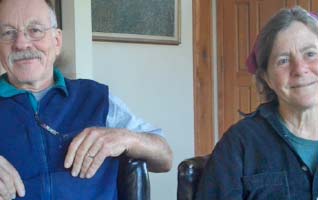
“I have become extremely impressed with the number of people all around the world who have become aware of the problems at the local scale and are creating alternative realities that are very different from our factory farming nightmare, and the High Fructose Corn Syrup products that dominates a lot of the American food system. I think that system is becoming more and more vulnerable and we are in for a huge transformation over the next decade or so.” -Catherine Bagley and Gerry Smith
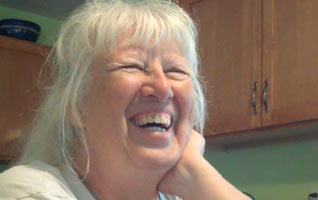
“What I don’t get is why do people not care about their children, their grandchildren and on to the Seventh Generation? Why does my convenience today take precedent over all of the generations to come? I just don’t understand that.” -Dolores Watson
Read the Unconventional Harvest series:
- On the Road to Find the Future of Food and Farming
- Grassland Organic Farm
- Wellspring Farm
- My Visit to an Amish Farm in New York
- Farm Sanctuary
- An Urban Oasis for Food
- Tantré Farm
- Conventional Dairy Farmer Art Thelen
- New Forest Farm
- A Large No-Till Organic Farm
- Melstone, Montana—Population 136
- In the Farmers Own Words
Nathan Winters rode a bicycle across America to discover first-hand why our food system had grown to be unsustainable, and to find alternative solutions. He traveled into the homes and communities of organic, conventional, urban and Amish farmers and community organizers. This ongoing series—to be posted every other Wednesday— represents select material from The Unconventional Harvest, a work in progress, by Nathan A. Winters.

